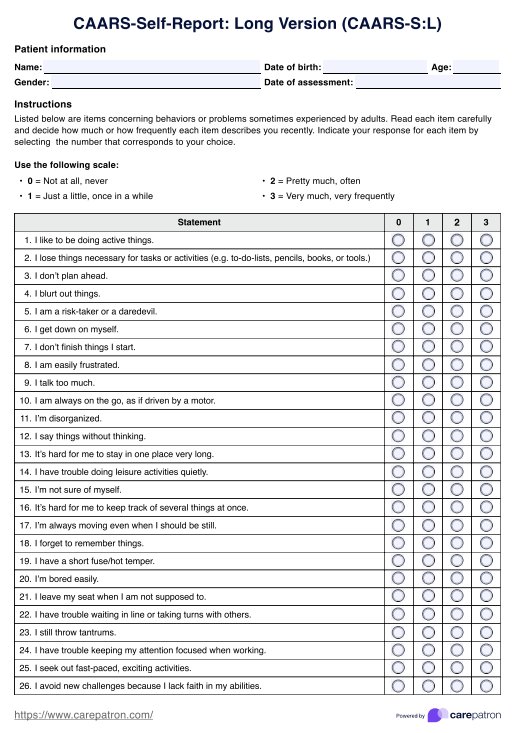The CAARS Self-Report Long Version (CAARS-S: L) is among the most accurate self-assessment tools for ADHD due to its alignment with evidence-based ADHD rating scales. It provides comprehensive insights through self-reported data and standardized scoring methods.

CAARS Self Report Long Version
Get access to a free CAARS Self Report Long Version template. Download the PDF for streamlined clinical documentation now.
CAARS Self Report Long Version Template
Commonly asked questions
CAARS Self-Report Long Version (CAARS-S: L) scores are converted to T-scores, with values above 65 indicating clinically significant ADHD symptoms. These scores help identify symptom severity and guide clinicians in the diagnostic process.
The CAARS Self-Report Long Version (CAARS-S: L) demonstrates high accuracy due to its strong psychometric properties and validation against normative data. It is widely recognized as a reliable tool for diagnosing and assessing ADHD symptoms in adults.
EHR and practice management software
Get started for free
*No credit card required
Free
$0/usd
Unlimited clients
Telehealth
1GB of storage
Client portal text
Automated billing and online payments











